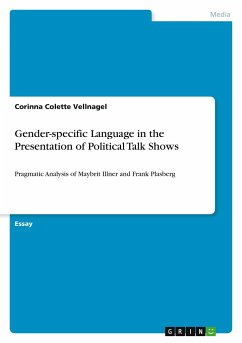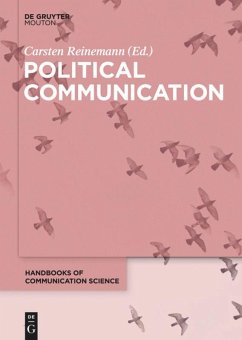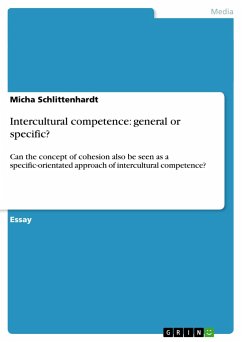
Gender-specific Language in the Presentation of Political Talk Shows
Pragmatic Analysis of Maybrit Illner and Frank Plasberg

PAYBACK Punkte
0 °P sammeln!
Essay from the year 2011 in the subject Communications - Intercultural Communication, grade: Good, The University of Surrey, language: English, abstract: Men and women do not only look different, they literally are different from scratch (Gates: 2008). But does this difference also apply to language and talk? 'Women talk more than men!' - Everybody has already heard of the myth that women are more talkative and use 20,000 words a day, whereas men get by with just 7,000 (Talbot: 2003). However, this has been contradicted by the University of Texas - there is no gender that is more talkative. Mo...
Essay from the year 2011 in the subject Communications - Intercultural Communication, grade: Good, The University of Surrey, language: English, abstract: Men and women do not only look different, they literally are different from scratch (Gates: 2008). But does this difference also apply to language and talk? 'Women talk more than men!' - Everybody has already heard of the myth that women are more talkative and use 20,000 words a day, whereas men get by with just 7,000 (Talbot: 2003). However, this has been contradicted by the University of Texas - there is no gender that is more talkative. Moreover, according to the studies, women speak on average 16,215 words and men 15,669 words a day (Mehl et al.: 2007). Language starts in people's heads, but since the areas and sizes of the different brain parts in women's and men's heads are completely unequal it nevertheless is logical that male and female language differs. A female brain has its own relatively big 'Gossip Lobe', whereas the male brain has only got a somewhat smaller 'Guy Talk' area (see Fig. 1).According to the amount of research that has been conducted in this field there are major differences between male and female language. Tabloid newspapers and talk shows tend to suggest that women swear less than men or that women are the more gossipy gender. These assumptions are internalised by the vast majority of the population, but are they really true (Coates: 2004)? Or is all that nonsense? The German publishing group Langenscheidt published a dictionary with the title 'German-Woman / Woman-German' which has especially been created for men so that they can interpret women's messages correctly. This again shows that male and female language varies.













